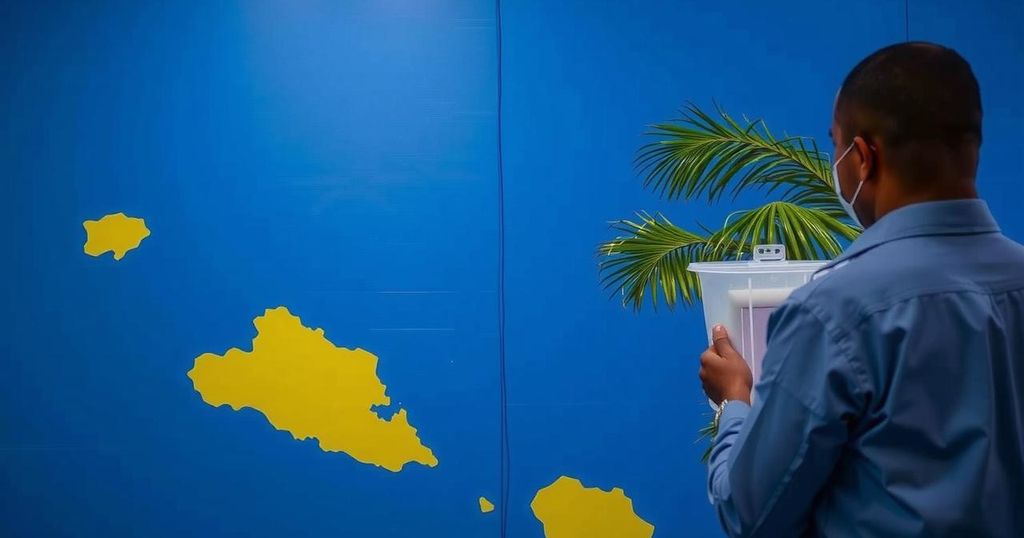Mauritius held elections on November 10, 2024, where Prime Minister Pravind Jugnauth’s ruling party aims to secure another term. The election follows a scandal involving government wiretaps and temporary social media bans, raising civil concerns. The economy, primarily driven by tourism and finance, has struggled recently but remains robust. With over one million registered voters, this election is critical in shaping Mauritius’s political future as a leading democracy in Africa.
Mauritius held elections on November 10, 2024, with the ruling party striving to secure a second five-year term for Prime Minister Pravind Jugnauth. The election was notable for its participation, with over one million registered voters casting their ballots to elect representatives to the 62 seats in Parliament. This election follows a period of heightened scrutiny for the government, particularly in response to a controversial ban on social media following a wiretapping scandal that involved leaked discussions among prominent figures. While the ban was temporarily lifted, it raised significant concerns within the opposition and civil liberties organizations. Prime Minister Jugnauth leads the Militant Socialist Movement, which previously won a parliamentary majority in 2019, while opposition leader Navin Ramgoolam represents the Alliance for Change. Mauritius is recognized for its stable democracy, having developed a robust economy largely based on finance, tourism, and agriculture. The country ranks prominently in the Human Development Index, which assesses quality of life, making it one of the more prosperous nations in sub-Saharan Africa. Despite facing recent challenges, including setbacks to its tourism sector from the COVID-19 pandemic, the World Bank continues to regard Mauritius as a model of success in the region.
Mauritius, an island nation located approximately 2,000 kilometers off the east coast of Africa, has a long-standing history of democratic governance since gaining independence from Britain in 1968. The country has conducted twelve parliamentary elections, establishing itself as one of Africa’s most stable democracies. Prime Minister Pravind Jugnauth’s government has received both praise and criticism in recent years, particularly regarding policies that impact civil liberties. The economy of Mauritius, supported by key sectors such as finance, tourism, and agriculture, has achieved significant growth and development, culminating in a ranking that places it second in Africa on the Human Development Index. This context is crucial to understanding the political dynamics during the current elections.
The elections in Mauritius mark a pivotal moment for the ruling party seeking to extend its mandate amid growing scrutiny and opposition challenges. With Prime Minister Pravind Jugnauth at the helm of the Militant Socialist Movement, the stakes are high as Mauritians head to the polls to determine their representatives. The outcome could significantly impact the country’s political landscape and future policies, especially as Mauritius continues to navigate economic recovery post-COVID-19. As such, the electoral results will be closely watched both domestically and internationally.
Original Source: apnews.com






